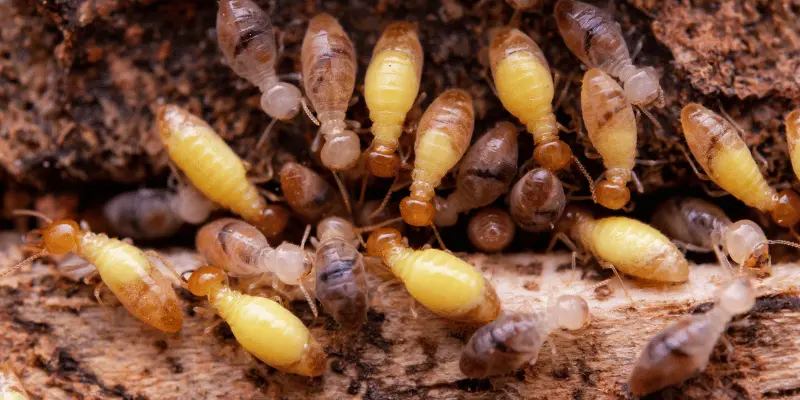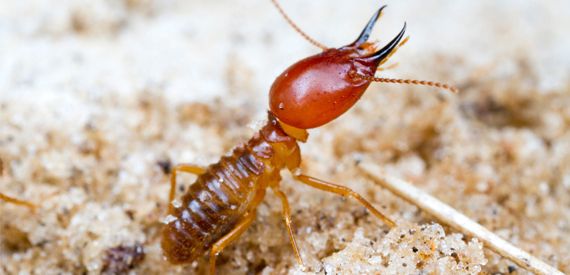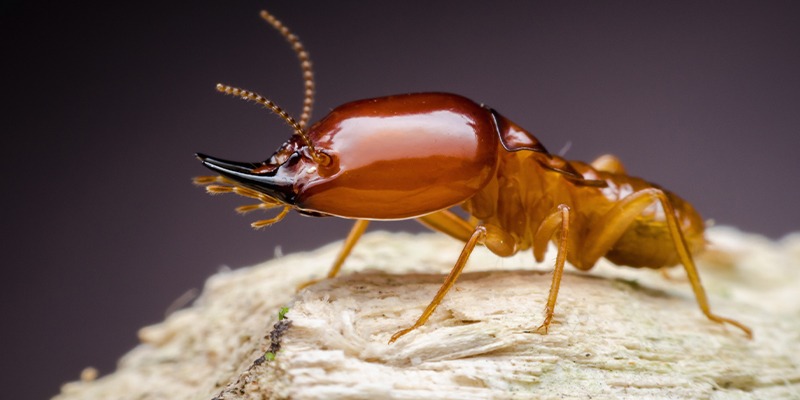Efficient Ant Control: Professional Services to Remove Ant Infestations
Efficient Ant Control: Professional Services to Remove Ant Infestations
Blog Article
Ecological Influence of Pest Control: Harmonizing Efficiency With Sustainability
The environmental influence of bug control is a critical issue that calls for a fragile balance in between accomplishing efficiency in taking care of bugs and making sure sustainability of our ecosystems. As we make every effort to safeguard our plants, homes, and health and wellness from the hazards postured by bugs, the methods we utilize can inadvertently hurt the atmosphere. From using harmful chemicals that leak into our dirt and water to the unintended consequences on non-target types, the effects of standard insect control techniques are far-reaching. There are emerging methods that offer hope for a much more lasting approach to pest administration. These options not only objective to resolve the immediate parasite problems however additionally think about the long-lasting wellness of our planet.
Harmful Chemicals in Pest Control
The use of unsafe chemicals in pest control poses significant environmental and health risks that warrant mindful factor to consider and reduction approaches. Pesticides, insecticides, and herbicides are frequently utilized to remove insects, however their widespread application can lead to unintended effects. These chemicals can pollute soil, water sources, and the air, affecting not only the targeted pests but also useful bugs, wildlife, and human beings.

To resolve these threats, incorporated parasite monitoring (IPM) strategies are being advertised as an extra lasting option. IPM includes a mix of techniques such as organic control, environment adjustment, and the targeted use chemicals as a last hope (ant control kannapolis nc). By adopting an alternative technique to pest control, we can reduce the environmental and health impacts connected with damaging chemicals while successfully taking care of pest populations
Effect on Non-Target Variety
Considering the unintentional repercussions of bug control techniques, the effect on non-target species is an important aspect that calls for comprehensive assessment. While parasite control measures aim to target certain parasites, various other microorganisms in the community might be accidentally impacted. Non-target types, including advantageous bugs, birds, creatures, and also plants, can suffer straight or indirect damage from chemical applications or organic control approaches.
Insecticides developed to deal with a certain insect parasite may damage pollinators like bees or all-natural killers such as ladybugs. Biological control representatives, if not species-specific, can present dangers to unintended targets, interfering with the environmental balance.
To minimize the influence on non-target species, incorporated parasite administration (IPM) strategies that stress an alternative strategy to pest control are suggested. These methods focus on making use of eco-friendly methods, lessening harm to advantageous microorganisms while efficiently taking care of pest populations. Carrying out thorough risk assessments and monitoring the outcomes of parasite control initiatives are vital action in guarding non-target species and promoting total ecosystem wellness.
Dirt and Water Contamination
Unintended ecological consequences of insect control approaches extend beyond affecting non-target types, with significant ramifications for dirt and water contamination - termite control. Chemicals, herbicides, and chemical plant foods used in bug control can seep into the soil and pollute groundwater, posturing a threat to both terrestrial and aquatic ecosystems.
Water contamination is one more crucial concern linked with parasite control practices. Drainage from farming fields treated with chemicals can lug these chemicals right into nearby water bodies, affecting aquatic microorganisms and water top quality. Contaminants in water sources can have far-reaching consequences, impacting not only water life but also human health through the consumption of contaminated water or water microorganisms. To alleviate dirt and water contamination from insect control activities, integrated insect monitoring strategies that focus on sustainability and decrease chemical inputs are essential.
Air Air Pollution From Chemical Use
Exposure to air-borne pesticides during farming applications postures a considerable issue for air pollution control actions. When chemicals are splashed onto crops, they can volatilize right into the air and type volatile natural compounds (VOCs) and various other air-borne contaminants. These chemicals can contribute to the development of ground-level ozone, a significant component of smoke that can have damaging effects on human wellness, plant efficiency, and overall air top quality. Additionally, chemical drift, where pesticides are lugged by the wind to unplanned areas, can result in the contamination of close-by ecological communities and water bodies.

Approaches for Sustainable Insect Control
In the world of farming techniques, executing sustainable bug control strategies is extremely important for keeping ecological balance and safeguarding crop yields. Sustainable bug control stresses the usage of eco pleasant approaches to manage pest populaces properly while minimizing harm to non-target organisms and communities. Integrated Insect Administration (IPM) is a widely adopted method that combines biological, cultural, physical, and chemical control methods to achieve long-term bug administration remedies.
Crop rotation and diversity are also reliable strategies to disrupt pest life cycles and develop much less favorable problems for bugs to flourish. Ultimately, by incorporating these sustainable parasite control methods, farmers can accomplish a balance in between pest administration effectiveness and ecological stewardship.
Conclusion
In verdict, the ecological effect of pest control approaches need to be thoroughly taken into consideration to stabilize efficiency with sustainability. Harmful chemicals made use of in pest control can cause dirt and water contamination, air pollution, and damage non-target types - ant control. It is essential to carry out lasting parasite control techniques to lessen these adverse results on the environment and promote a healthier environment for future generations
By taking on a holistic approach to pest control, we can reduce the environmental and health and wellness influences linked with harmful chemicals while efficiently handling pest populaces.

To alleviate the air pollution triggered by pesticide use, it is necessary to take on integrated insect administration methods that focus on the usage of non-chemical insect control methods, such as crop turning, all-natural see post predators, and immune crop ranges. Sustainable parasite control stresses the usage of ecologically pleasant approaches to manage bug populaces efficiently while minimizing damage to non-target microorganisms and communities. Integrated Parasite Administration (IPM) is a widely embraced strategy that combines organic, cultural, physical, and chemical control techniques to attain long-term bug management options.
Report this page